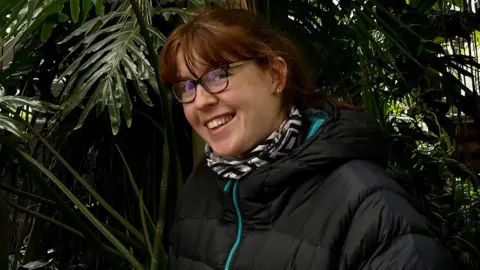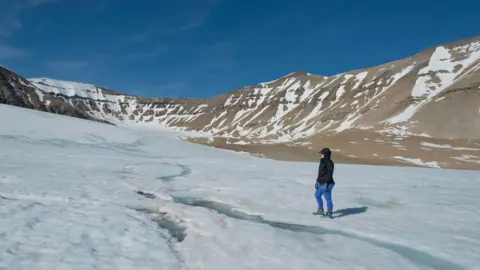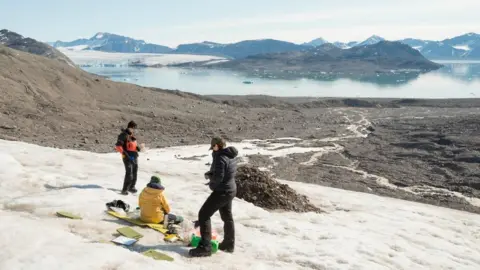Bristol University student starts journey to remote Antarctic island
 BBC
BBCA PhD student is heading to Antarctica to study snow and glacial algae growth.
University of Bristol student Emily Broadwell has set off on a two-week journey to Signy Island, one of the most remote locations on Earth.
She and five others will live in an ex-whaling station, used for research by the British Antarctic Survey (BAS) since 1947.
Studying microbial life in remote places helps scientists track climate change in the most affected areas.
 Iain Rudkin
Iain RudkinMs Broadwell, who grew up in St George in Bristol, is a glacial microbiologist.
Her research focuses on how organisms can adapt to living in low temperatures, with high-light environments and limited nutrients.
"For a long time, people didn't think there was any kind of microbial life there, but obviously over the past couple of decades this area of research has really increased," Ms Broadwell said.
Signy Island is located 370 miles (595km) from the rest of the Antarctic peninsula, and 800 miles from the Falkland Islands.
The research group will stay at the BAS base until April, when it will be shut down for winter as temperatures plummet to -44C.
 Iain Rudkin
Iain RudkinThe island has no space to land a helicopter and an emergency extraction would take seven to nine days.
Ms Broadwell will bring algae samples back to Bristol to compare with other samples she has collected in the Arctic and the Alps.
She hopes she may be able to help discover a possible new species of algae by studying the DNA.
Ms Broadwell said: "A lot of people have said that it's the 'trip of a lifetime'.
"But I do hope I get to go back again, so we'll see how it goes."

Follow BBC West on Facebook, X and Instagram. Send your story ideas to: [email protected]
